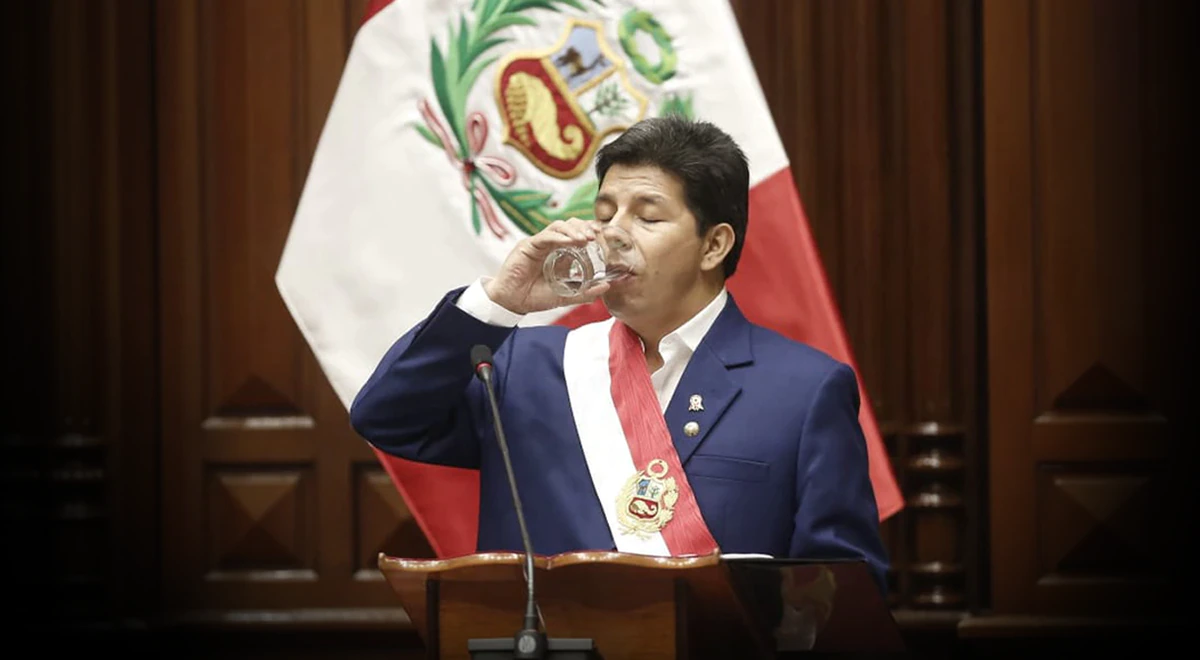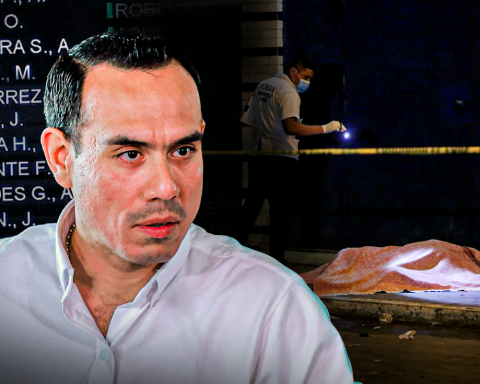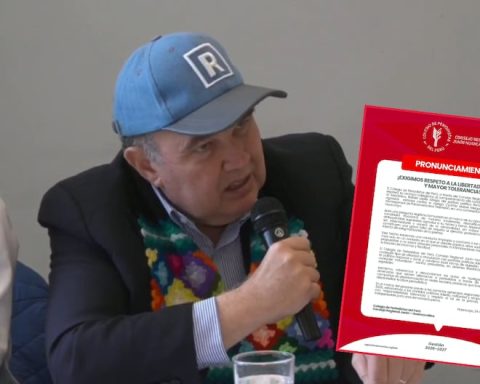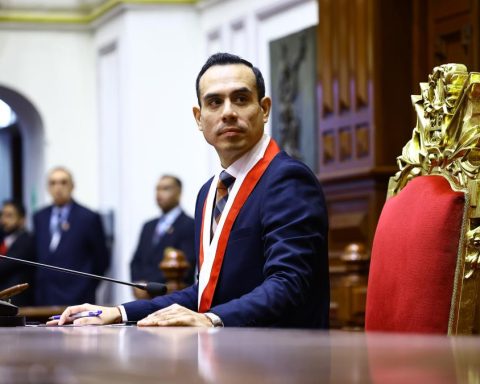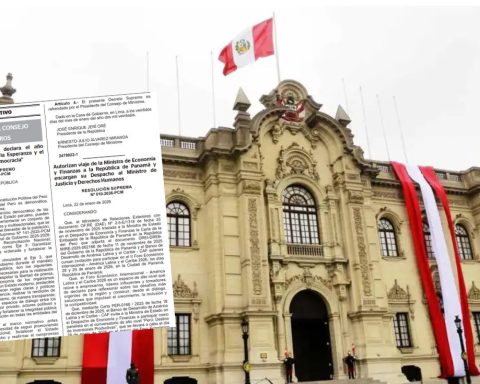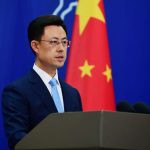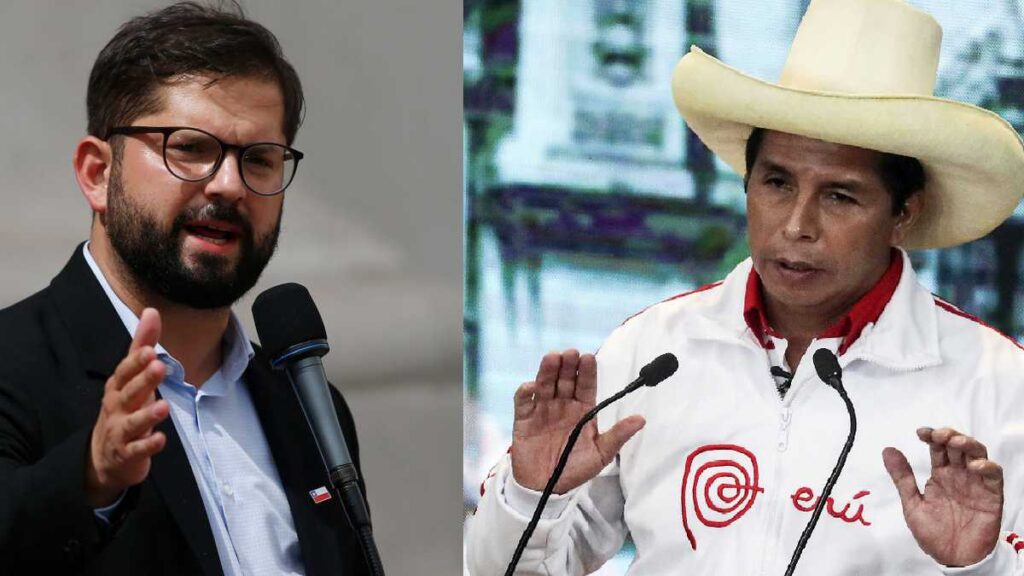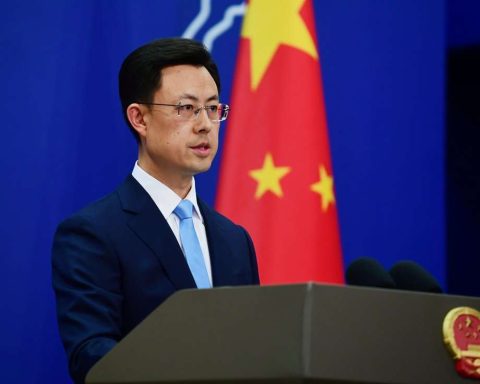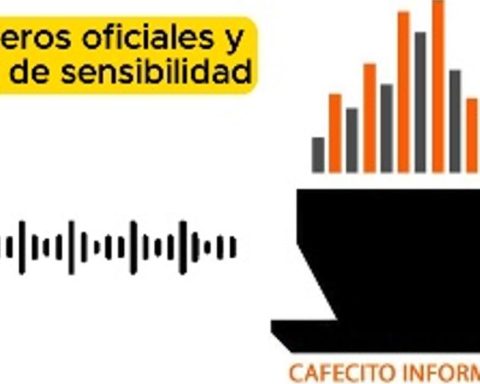After two days of uncertainty, the president peter castle finally responded to Aníbal Torres’ request for resignation, Reaffirming him as Prime Minister of his Government and also took the opportunity to make changes to six portfolios in your cabinet. The appointments raised various criticisms not only from the public, but also from the Congresssince these changes included the return of Betssy Chávez to the Executive, the entry of Miguel Rodríguez Mckay as chancelloramong others.
Permanence of Aníbal Torres in the PCM
Given this scenario, it is important to question the president’s motives for making such decisions and what lies ahead for his government after reaffirming Torres as head of the PCM. In this sense, the political scientist Anthony Medina, director of the School of Political Sciences of the Universidad Católica Santa María de Arequipa, pointed out that These actions have been taken to “measure the temperature of the popularity that Aníbal can continue to maintain and continue to command the PCM for the coming months.”
According to Medina, that Torres “has made his position available” it is not normal. “When a minister wants to resign, he resigns directly, he does not say I am making ‘my position available’, but rather he indicates up front: I am resigning from the position for x reason. (…) The president also needs a person who will serve as a force to clash against certain attitudes that Congress has had, like the last one, which has been to deny him the trip to Colombia, which is something that even Pedro Castillo’s own detractors have said is a mistake,” he specified.
This absence of a holder of the PCM that he does not have the necessary skills is also pointed out by the political scientist and sociologist David Sulmont, who points out that Torres’ permanence corresponds more to a sense of lack of personal confidence in the government of the president.
YOU CAN SEE: Pedro Castillo issues an ultimatum to Congress: “I extend my hand for the last time to achieve a consensus”
“The fact that he has not been able to find a replacement for Aníbal Torres is also indicative that there are not many people with their own weight willing to risk it for this Government. (…) It is a cabinet that does not reflect at all, nor does it bring us any news. Rather, it deepens the trends that we are seeing in this government,” said the expert.
However, for Sulmont, Torres’ permanence in office and the ministerial changes do not make any difference in the way in which the president’s administration has been developing. “The relationship between the president and the legislature is a tense relationship. The refusal to give you permission to travel to Colombia It shows that it is going to be a Congress that is not going to collaborate with the Government, nor is it known what the Government would like Congress to collaborate on, because it is not clear where Castillo wants to take the country,” the expert said.
Neither vacancy nor closure: the political entrapment between Congress and the Executive
Another of the issues that both specialists warn about is a sort of political crossroads in which none of the powers of the State wants to change their situation, which may be the result of a quest to maintain power as well as an intention to favor their own ends.
YOU CAN SEE: Congress with 10% approval and 53% evaluating a bad first year of both powers
“Very little is seen from Congress an intention to push towards a way out of this political morass that we are experiencing, what prevails there is a survival instinct of the majority of congressmen. They already know that an exit that goes through a resignation or a vacancy implies in any case an early general election, so they do not want to lose the only political power they are going to have in these years, which is to be in Congress. (…) Particular interests will prevail and alliances will be forged around some conservative agendas. We have already seen it before with Fujimorism and Peru Libre,” said Sulmont, who highlights as an example the presentation of a minister of Foreign Relations closer to the opposition than to the Government.
But, if there are no intentions to vacate or close Congress, Why do these types of speeches still persist in both powers?
Anthony Medina specifies that this fact corresponds more than anything to a usual type of speech in politics that serves to measure the negotiating capacity between both forces.
“When politicians make statements, they always play with both cannons; They said that about the double-barreled shotgun it applied to the APRA, but in reality it applies to everyone. With one hand you fight and with the other you negotiate. Lady Camones, on the one hand, says that she will support to a consensus agenda Y then he says that he is going to support a vacancy. Naturally, they are pressing at the level of statements how far the others can go, what their capabilities are; Y if you have a belligerent Congress, you are not going to turn the other cheek”explained the political scientist.
YOU CAN SEE: Two out of three Peruvians insist on new general elections
Medina agrees with Sulmont that “Not even Castillo wants to close Congress, and neither does Congress want to vacate Castillo.” Meanwhile, Peru remains in a situation of constant uncertainty that cannot change until, either on one side of the rope or the other, an attempt is made to make a movement that promotes a political channel with a view to a prosperous future in the country.
How to get out of this neutral point?
For Sulmont, there are very few possibilities to change the situation, which have to do with maintaining the hope that the change will come from the president himself. “Castillo would have to realize that his government is unviable, he has just finished his first year, it is four more years of the same, for a country that is not getting anywhere. This can be tricky because, if there is any crisis or social conflict of the Government, he will not have the strength to face that, ”he explained for this medium.
Medina adds that, “As long as they continue to tighten the rope, they will end up breaking it, on one side or the other. We are entering a game of declarations, which I think is quite dangerous in a second year of government. That is, how long can this balance be maintained? We do not know”.
Neither one power nor the other is willing to give in. Photo: composition The Republic
YOU CAN SEE: Transparency rejects Pedro Castillo’s speech
The third option is defined by Sulmont as a long and complicated path, but which, after all, emerges as a path in this scenario. It refers to the collection of signatures for the execution of a referendum for an early election.
“In any case, this is a solution that will take at least a year, since it consists of collecting signatures, obtaining 66 votes in Congress for it, and voting on the referendum,” indicates, to then add one last possible output.
“The other thing is that some moment of public opinion arrives in the face of a scandal that generates a mobilization of the citizenry that forces any of these exits (or vacancy or dissolution), that has happened in the past. However, now the strong discontent of the citizens is not reflected in the mobilizations that motivate a change of actors in the Government or in terms of Parliament”concludes the specialist.
